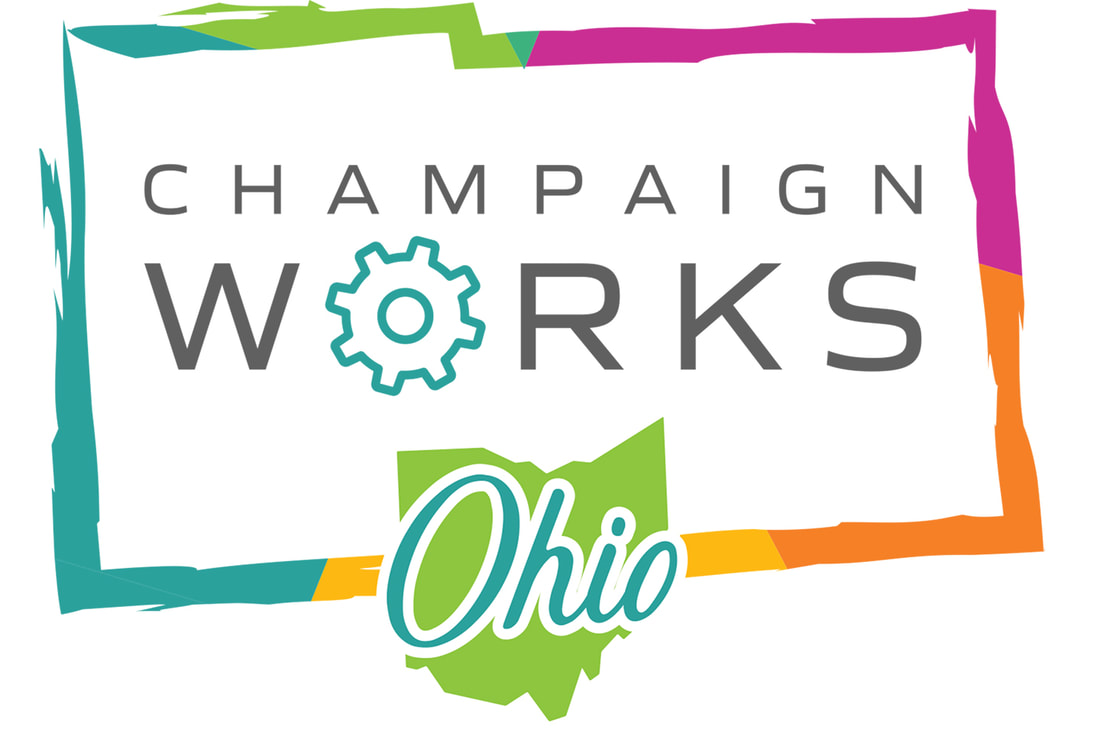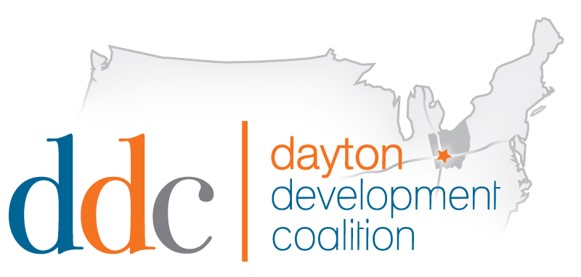If you have ever been grateful for your intermittent wipers when you driving through a rain shower, the Hall Company worked with GM on that feature in 1970. Ever been to Disney? The Hall Company helped Disney when they built the monorail system. Have you ever flown? The Hall Company produces patented membrane switches for cockpits and even the food industry. Have you ever had an MRI? The Hall Company produces collision sensors to keep you safe.
We can thank Kyle Hall, President of The Hall Company, and his team for the countless ways they provide solutions for industry leaders here and across the globe. Kyle and his company are a vital part of our community.
“They say they’re seeing a lot of demand in emergency rooms,” Hall said of the cooling systems found in emergency rooms throughout the country. He described the Gentherm product as a cooling system on wheels with a Hall Company control device that raises and lowers the temperature of blankets used in emergency rooms.
Hall said The Hall Company has heard from many customers as the coronavirus closed the doors of many businesses. “A lot of customers reached out to us,” he said. “They say we’re essential.” The company is not only hearing from customers for whom medical devices are made. Illinois Tool Works (ITW) in Piqua manufactures food processing equipment for commercial kitchens throughout the country. The Hall Company makes replacement parts for that equipment. “They told us we’re essential to the supply chain,” Hall said. “You don’t think about how connected we all are.” Asked whether current staffing can handle regular production as well as Gentherm’s order wanted next month, Hall said employees are handling the situation. “We didn’t take this situation lightly,” he said of the COVID-19 threat. “We are not requiring employees to come in. We asked for volunteers. Most of our staff volunteered.” Hall said he appreciates employees’ willingness to work, but understands the decision of those choosing to stay home during the pandemic. “We want to help the U.S. and help the supply chain, but employee safety is our number one priority,” he said. “We’re a family business. Without our employees, we have nothing.” Employee breaks have been staggered so people are not in one place at the same time. The once-a-day cleaning routine now is done several times a day. “We’ve redone the layout so we can space out, and some people work from home when possible,” Hall said. “We’ll all be in different rooms talking on the phone. We take temperatures each day and check it again a couple times a day. “We’re trying to do what’s right for everybody,” he said. “We appreciate our employees and we appreciate the people on the front lines. We’re not on the front lines, but we’re trying to give the people on the front lines the tools they need.”
“Our largest trading partner is in Israel, so we do a lot of business with GE Healthcare in Israel, but they build stuff in different places, so we make these large sensors, and our sensors go on their call-meters they use for scanning. So we’re selling stuff that goes to their division that does gamma cameras,” Hall said. “They build a lot of them in the Netherlands.
We have a couple customers in the Netherlands, but most of the business in the Netherlands, they actually buy panels from us, so we’ll negotiate a contract with GE for the year… and some of them they ship directly to Haifa in Israel. Some of us they will tell us to ship to another company in Israel, and then some of them they’ll ship to the Netherlands. And those people who produce these call meters will attach our part and then they ship the entire thing. That’ll all GE Israel, but it still goes to different places.“ Hall explained that as an industrial printer, the company works in about five different segments including medical, aviation, industrial equipment and consumer products, most of which remain in the United States. But the percentage of international sales has been growing, particularly as Hall builds a relationship with General Electric, which has divisions in Israel, China, Japan and is growing and buying new companies all the time, according to Hall. “Most of what we’re doing overseas is actually medical,” he said. “There are occasions where we sell aviation and some other things, because we have customers all over the place, but from a volume standpoint it’s really mostly medical, and that drives our business. Sixty percent of our business is medical in any given year. Probably 10 percent plus is aviation, we have another 10 percent that is probably industrial automation. A percentage of it is consumer products, and then we do stuff for scientific and testing equipment, anything you can think of. If you think about it, everything needs a switch, a sensor, an overlay, a nameplate or a label telling you what it is. Everything out there has something on it.” Company history According to the company website, The Hall Company has been providing world-class solutions to customers in the sensor, printed electronics and identification product markets globally since 1961. William D. Hall Sr., who was an aeronautical engineer by trade, founded The Hall Company in his basement in Urbana initially to serve the aerospace industry. The company’s initial product offerings included metal nameplates, foil labels, printed lenses and metal control panels. The Hall Company supported the budding space program by providing printed lenses and nameplates to the Gemini and Apollo space missions. As the company grew its engineering and production capabilities, it started producing graphical overlays and printed circuit boards. “In the 1970s plastics hit the market, and that changed everything,” said Kyle Hall. “We started doing a lot of plastic printed overlays … Then in the late ’70s printed electronics hit the market and become one of our biggest businesses. We got one of the first patents in the United States for a membrane switch. It took off and became our largest volume business, and it still is today. “We think we exported our first part in 1993, and that went to Hong Kong,” he added. “When my father (James) was around they did a lot in Germany, a lot in Japan, but our sales were at a lower level. They’re higher now, so back then it was probably a lower percentage of total sales. Over the last several years it’s just really taken off, and it’s been by a couple customers.” Hall said that today his company exports switches and high-tech sensors to companies all over the world, but particularly to General Electric, as well as an American corporation that does its manufacturing in Mexico. “That customer moved their production from the United States to Mexico, so that’s not great for the American economy, but we were able to hold onto it, so it’s good from that standpoint,” Hall said. “We’re still exporting that … we’ve been doing business with GE for 40-something years and now pretty much when they need a switch like this anywhere in the world they just contact us.” Hall said they began doing business with the Israeli Ministry of Defense around 2008, but had previously worked with a smaller company in Israel that now works with General Electric. Kyle Hall is the third generation of his family to take on the role of company president, following his father James’s passing in 2008, and said he has seen the technology change even in his 11 years at the helm. “We’ve looked more to digital,” he said. “We’ve gone from membrane switches to looking for a lot of capacitive technology - more of whole builds instead of just selling a switch or a circuit. We’re doing a lot more valueadded assembly. We’re looking at growing our current customer base and how we can really concentrate on expanding with them, and that’s going to lead to some new international things. We anticipate our international business to double over the next five years, based on what our customers are doing, which would be very good for us.” Partnerships Hall is currently a member of the Champaign Economic Partnership’s board and says he tries to support them as much as he can. “I think it’s a good entity for the county from an economic development standpoint,” he said. “I think it works well. When the city was doing one thing and the county was doing another thing it was kind of all over the place, it was complex. So I think now that everyone’s pooled resources it makes sense.” His company is also a member of the Dayton Development Corporation and Hall served on their board several years ago. The DDC hosted a seminar to introduce local businesses to the Israeli Ministry of Defense and to give them information about quoting and bidding services. Hall said he was unable to attend the seminar due to a quality audit scheduled for the same day, but he did travel to Dayton to have lunch with Israeli representatives the next day. “It was kind of just a meet and greet to see how we could partner,” Hall said. “I think they’re looking for whole pieces of equipment like cars and tanks and things like that, whereas we just make components. But we got some ideas for how we can look at it, and we are registering with the IMOD to see if we could quote something at all, because there could be something we do that could be a replacement part or something of that nature.” Last year, 21 percent of Hall’s international sales went directly to Israel. Another 44 percent of sales went to the Netherlands, but Hall explained that most of those products will end up in Israel. While Hall creates both tier one and tier two components, the company they work with in the Netherlands is a total second tier provider. Hall said he has traveled overseas when it is necessary, but because GE is based in America it is often more convenient to have GE representatives visit Urbana. He said that GE moved a lot of their medical business to China a few years ago and no longer builds anything at their corporate offices in Milwaukee. “Our international business is based off of long-standing relationships with companies that are just doing stuff overseas,” Hall said. “We do have smaller companies that will reach out to us, they’ll find us on the web and stuff like that, but it’s really more driven by GE and ComEd and Siemens and people like that.” Despite Hall’s international ambitions, the company still hires a largely local workforce, has maintained a head count of about 35 employees at their local plant, and currently has open positions they are looking to fill. In this way, Hall hopes to strengthen the economy both for entry-level manufacturing specialists seeking a job, and for the country as a whole. “The best way to fix an economy, whether it’s broken or just to improve it, is to make something here, send it overseas, and bring those dollars back here,” Hall said. Christopher Selmek can be reached at 937-508-2304 “At least 75 percent of economic development is retention – helping existing businesses succeed and possibly expand their operations to provide jobs and a tax base that improves our county’s quality of life,” says Marcia Bailey, director of the Champaign Economic Partnership (CEP).
That’s why she and the CEP Board of Trustees created a team that visits local businesses to learn more about them, including what’s working for them and what challenges they face in reaching their goals. So far, the JOBS (Jobs, Opportunities, Buildings and Space) team has visited Honeywell Aerospace, Bundy Baking Solutions and the Hall Company. The JOBS team is available to visit any type of business – not just manufacturing. Businesses wanting a visit may call the CEP at 937-653-7200. The CEP is a partnership of local government and business created in 2015 to promote economic development, workforce development and job retention and creation in Champaign County. The JOBS team varies from one visit to the next, but generally consists of Bailey; a county commissioner; a city and/or village administrator; an education representative, from Urbana University, Clark State Community College and/or Ohio Hi-Point Career Center; and a workforce development representative, from Ohio Means Jobs Champaign County or the Champaign County Department of Job and Family Services. During the visits, the team learns about each business: · Their products, services, markets and history · Local companies they do business with · What they like about doing business in Champaign County · What they think would make doing business easier · Plans, such as expansion, new products or markets, and what they’ll need to make it happen, such as more land or building space, additional utility access, more employees or training for existing staff “Our JOBS team visits enable us to see how the CEP and our partnerships with private businesses, local government, education, workforce development, and regional and state economic development agencies can boost local businesses,” Bailey says. “And our visits help businesses learn about the resources the CEP and our partners have to offer. They learn that we’re ready to help.” She adds, “From these visits I’ve learned a lot about our local businesses. I’m impressed by the quality of the products they produce, the skill and technology that goes into making them and the high regard they’ve earned in markets across the country and around the globe.” In the visits the businesses have cited as advantages good relationships with the city of Urbana, utilities and local suppliers; a relatively good cost of doing business; and the Grimes Field airport. Challenges that they’ve cited include upcoming retirements and meeting current workforce needs, including machinists and entry-level positions. A need for more space to increase business capacity was also mentioned at one of the visits.
By working together during and after Manufacturing Day, manufacturers will begin to address the skilled labor shortage they face, connect with future generations, take charge of the public image of manufacturing, and ensure the ongoing prosperity of the whole industry.”
For the past five years, local leaders, manufacturers and education institutions have come together on Manufacturing Day to celebrate the county’s ever-growing manufacturing sector and to introduce high school students to the job opportunities available in their own back yard. 2016 event In honor of Manufacturing Day 2016, the Champaign County Ohio Manufacturing Human Resources Council with assistance from the Champaign Economic Partnership (CEP) hosted an event Friday in which dozens of students from Urbana, Mechanicsburg, Graham and Triad high schools were introduced to the following manufacturers: Honeywell Aerospace, WEIDMANN, Bundy Baking Solutions, Rittal, ORBIS, The Hall Company and KTH Parts Industries. The event consisted of three sessions – a morning tour, a presentation period/lunch at the Urbana University Student Center, and an afternoon tour. “Our community is fortunate to have the welcoming environment from the local manufacturers,” CEP Economic Development Director Marcia Bailey said. “They are anxious to showcase their products, explain the skills needed to work in today’s manufacturing environment, and offer time for the students to have a true hands-on learning experience. “We are also fortunate to have our local school systems (local school districts, Ohio Hi-Point and Urbana University) that want the students to have the opportunity to visit and learn more about the various career options that are available to them in manufacturing,” she added. During Friday’s two tour sessions, Triad students visited Rittal, ORBIS Corporation and WEIDMANN; Mechanicsburg students went to Bundy Baking Solutions and Honeywell Aerospace; Urbana students toured The Hall Company and WEIDMANN; and Graham students stopped by Honeywell Aerospace and Rittal. Graham Superintendent Kirk Koennecke said Manufacturing Day ties in well with the district’s Career Gears program, which focuses on the three “E’s” – enlistment, enrollment and employment. “It provides a great opportunity for our younger students to learn about careers close to home in a variety of settings to spark their personal interests and to help them set goals,” he said. “We applaud our community partners for helping us provide these important examples and for building relationships with our students.” At Mechanicsburg High School, Superintendent Danielle Prohaska said the district’s participation in Manufacturing Day helps support its increased focus this school year on the three “E’s.” “We also believe that partnerships throughout the county will provide additional connections, skills development, and employment opportunities for our students,” she added. “Our involvement is important in growing those partnerships. “We want our students to make connections with manufacturers and leave school prepared for employment, enlistment or enrollment.” Joshua Keeran may be reached at 937-652-1331 (ext. 1774) or on Twitter @UDCKeeran. By Michael Cooper, Springfield News Sun
Champaign County has a growing need for skilled labor at local plants as many in the workforce prepares for retirement, which is why county leaders and local manufacturers teamed up Friday to reach out high school students. About 100 high school students attended Manufacturing Day at Urbana University on Friday, held annually by the Champaign Economic Partnership. The event aims to educate students about the manufacturers located in the community, their products and the skills needed for employment, Economic Development Director Marcia Bailey said. Champaign County has about 3,725 manufacturing jobs, Bailey said, up from about 2,900 in 2013. >>RELATED: Honda supplier plans $24M to $34M expansion in St. Paris However a majority of the local manufacturing workforce has neared retirement age, including many who at the higher-end of the pay scale, Bailey said. About 49 percent of local manufacturing employees are between 45 and 64 years old, while just 3 percent are between the ages of 19 and 24, she said. “We need these students, this younger workforce to fill the positions that will need to be filled,” Bailey said. “It’s a huge, huge issue.” The average annual earnings of a manufacturing worker is about $66,000 in Champaign County, she said. “You don’t find those kind of jobs immediately, but you start working your way up,” Bailey said. The students toured several manufacturing facilities and participated in an interactive workshop Friday with companies such as KTH, Honeywell and the Hall Co. among others. It’s the third manufacturing education event held in Champaign County this year. >>DETAILS: Champaign County sees growth in manufacturing Rittal, which makes metal enclosures for industrial and information technology systems, also held tours for local students, Benefits Specialist-Human Resources Michele Mandelik said. “A lot of them said, ‘We didn’t even know you were here,’” Mandelik said. The company has several employees with 10 and 20 years of experience retiring in coming years, she said, and will need skilled employees to take their place. “When they leave, we’re losing that experience, so we want to transfer that experience to new hires,” Mandelik said. A group of sophomores from Graham High School toured the Honeywell plant on Friday morning, said Ali Peterson, who runs the career-based intervention and career connections program through the Ohio Hi-Point Career Center. The program helps students create both academic and career goals, some of which include manufacturing and aviation. “It was a highlight for them,” Peterson said. “It gave them some different options than they had previously considered and allowed to do some networking with them as well.” Each student has a different plan for the future, she said, which doesn’t always include college. Some students are encouraged to go to a career technical center or a trade school. “It will help them succeed and make them employable for years to come past graduation or that first job,” Peterson said. Students need to be as employable as possible before leaving high school, especially in light of state and national unemployment statistics, Mechanicsburg High School Teacher Kurt Forrest said. Many students complete four years of college, but sometimes can’t find a job in their field and are left with thousands of dollars in debt. “We need to make sure every single kid has a plan that fits that individual,” Forrest said. “When you do that you’re going to set them up for success.” Education is still vitally important, Bailey said. Students can also enroll in college while they’re still a high school student through Ohio Hi-Point, she said. “It’s not just one path, there are many paths,” Bailey said. The tour at Rittal was a great experience, Triad High School freshman Daniel Lake said. “I learned a lot just walking through the factory,” Lake said. “It’s a place I might be interested in after leaving high school. … (Manufacturing) is just a high-demand field. There are so many things you can apply the skills you learn for it, too.” By the numbers 3,725: Manufacturing jobs in Champaign County 49: Percentage of manufacturing employees ages 45-64 3: Percentage of manufacturing employees ages 19-24 Source: Champaign Economic Partnership Unmatched coverage The Springfield News-Sun provides complete coverage of jobs and the economy in Clark and Champaign counties, including recent stories on monthly unemployment statistics and expansions at Navistar. Urbana native and third generation business owner Kyle Hall has been appointed to the Clark State Community College Board of Trustees by Governor John Kasich.
Hall serves as president of the Hall Company where he oversees all facets of day-to-day operations, company strategies, developing and executing short- and long-term plans, finances, key customer relationships and hiring decisions. “Kyle Hall brings excellent industry and management expertise that will serve our students, and his skill set truly complements our Board. We are pleased to have board representation from Champaign County,” said Clark State President Dr. Jo Alice Blondin. Hall said he is excited to be part of the Clark State Board of Trustees and looks forward to giving back to the community. “I think if you are in a position where you are able to run a company and be a leader in a community, you need to give something back,” he said. “I like to focus on things that I think I can benefit.” The Hall Company is a global, technology-based firm that provides switches, controls and overlays for a variety of industries including medical devices. “I’m excited by the steps Clark State has taken to partner with manufacturers and offer a wide curriculum of skills to help improve manufacturing,” said Hall. Hall currently also serves as chairman of the Board of Directors of the Hall Company and is a member of the Champaign County Manufacturing Council. He previously served on the board for the Dayton Development Coalition, Urbana Lions Club and the Champaign County Chamber of Commerce. He holds a bachelor of science in marketing from Wright State University. “I believe firmly that it’s important for people to better themselves through education,” said Hall. “There is a need in the workforce for additional skills and education that Clark State is very well suited to help with, and I’m excited to be a part of that.” |
Archives
February 2024
Categories
All
|
|
CEP Office Location:
40 Monument Square, Suite 306 Urbana, Ohio 43078 937-653-7200 |
All drone photography courtesy of Jassen Dobyns of UAVisions LLC. Additional photography courtesy of Dave Millner of the Champaign Camera Group.
Website by Berry Digital Solutions, LLC Urbana, Ohio |
Click on the logos for more information.

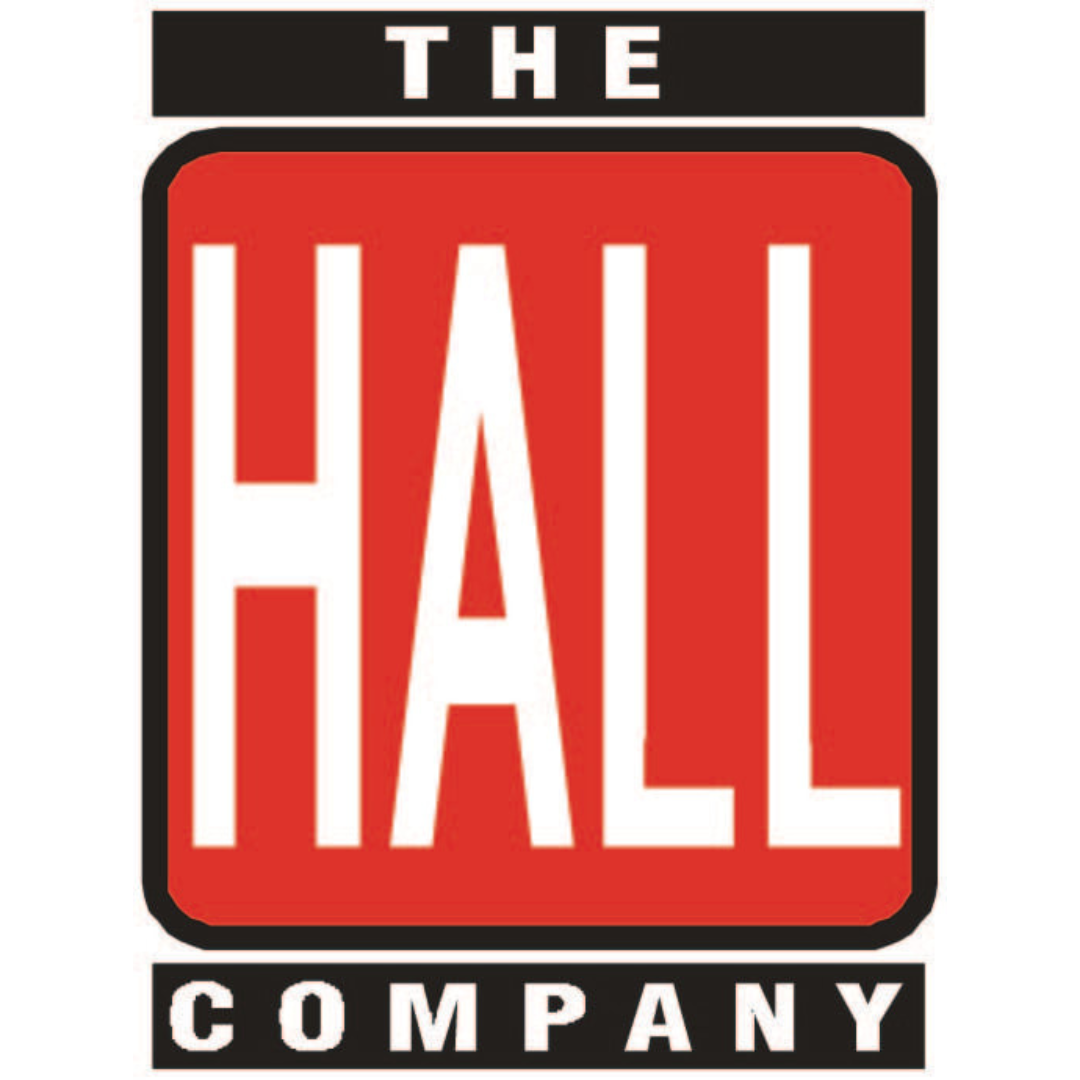
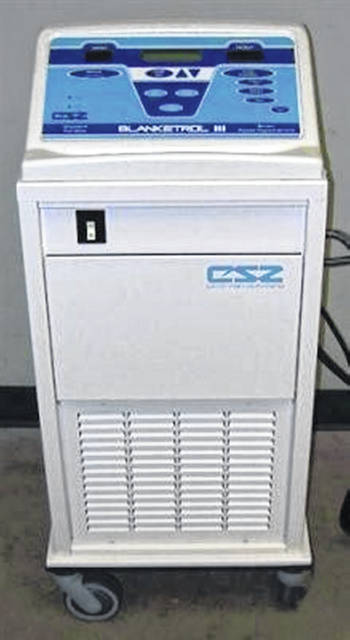
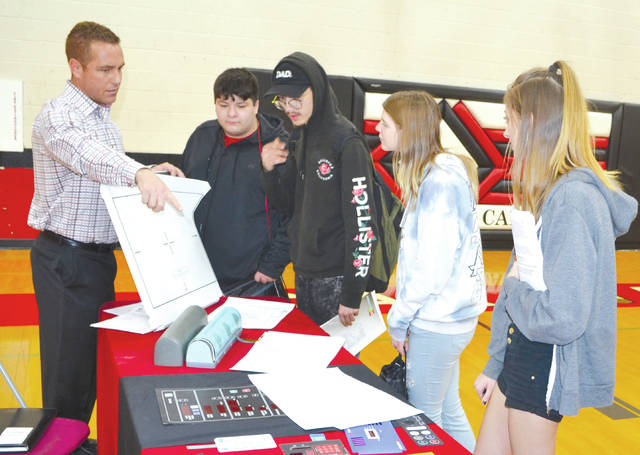
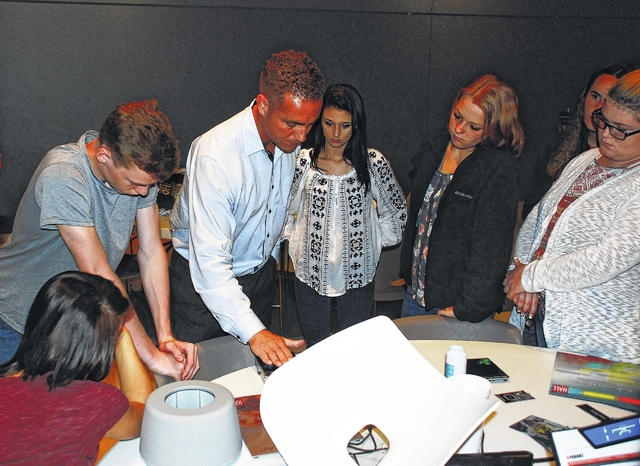
 RSS Feed
RSS Feed

